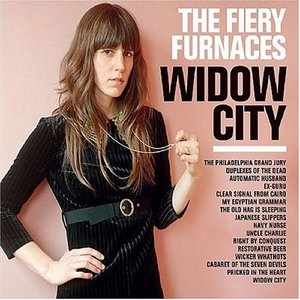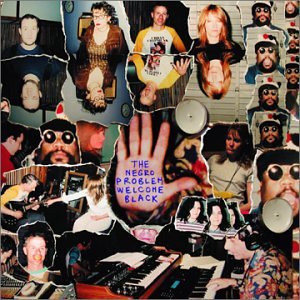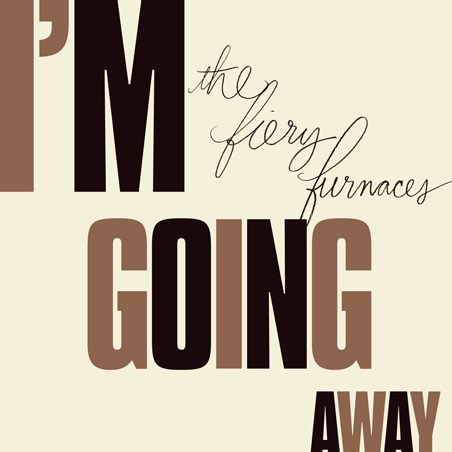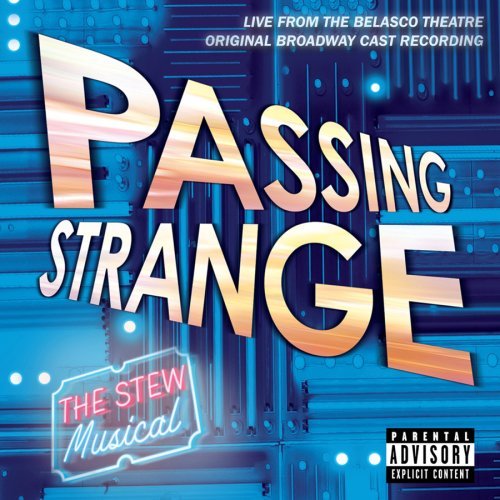Two Albums: One Triumph, One Try Again
William Gillespie

2007. Urbana. Parasol Records. I was trying to find a new job. Twelve interviews in twelve months, and after each, to calm down, I went to Parasol Records wearing a suit, feeling dirty, and blew money on records. On one such day, itching to spend but finding nothing I knew I needed, I asked Angie to recommend something I had never heard before. Something undanceable, with weird lyrics and unexpected time signature changes. This was probably an unfair request, but she nailed it. She handed me Widow City, by the Fiery Furnaces. She had been in a band or two with Mathew Friedberger. I took the disc home and put it on while painting a wall green, and Cristy and I were blown away in a way we seldom are: new music irresistible and yet unlike anything we’d ever heard, sharp, cool, unique, weird, jarring, bad-ass in a nerdy way, but with an integrity that made its own sense.
In fact, though we have each had such experiences on our own, there is only one other album that paralyzed us both together on first listen...
2003. Urbana. Blue Moon Farms. Rick and I were walking somewhere out past the basil, admiring the sunset, when he mentioned a band he thought I should check out: The Negro Problem. Well, truth be told, the whole idea of a band called The Negro Problem made me uncomfortable. But intrigued. But no Negro Problem albums presented themselves to me over the following months, so I didn’t have to take a stand on whether I thought The Negro Problem was an appropriate name for a band.

2009. Iowa City. The record store behind Haunted Books. On a whim, I looked in N, and there, enigmatically, was Welcome Black by The Negro Problem. I guess that I expected some confrontational, racially-charged music, probably rap. A few days later I was driving around Urbana at night, running some pointless errand, and I put the disc on. From the moment two minutes into the album when the singer Stew bursts in, erupting with the unforgettable, unfathomable declaration “Don’t want to put you in a pop coma/And then they put you in a popcorn machine!” I got very confused. I just felt weird. I could not stop driving around until the CD was over. And even then I had to back it up a couple of times. (Oh no, he did not really just sing, “Mr. Mellencamp, show me a hip small town free of those serial rednecks and all/With a bookstore where Chomsky’s speaking down at the Veteran’s Mall.” That’s too weird. This is like a black Tom Waits performing glam cabaret show tunes from Jupiter with Robert Fripp on guitar. Or... something.) The liner notes did not clear anything up: musicians credited include Ennio Lessaconi, Rollin’ Barthes, and someone named Loop plays something called Garoo.
Teachable moment: of course I wondered whether I should savor the wonderful weirdness of this new album—that rare, total What the Fuck? moment—or immediately research and obtain all the other material by the band. I did the latter, should have done the former. Even if Post-Minstrel Syndrome is perhaps the best possible album title for a band called The Negro Problem, I gather that Stew learned to write lyrics a few albums before he learned to focus on setting them to good melodies and arrangements, joining forces with Heidi Rodewald. I heard nothing else that throttled me in two other Negro Problem records and three Stew albums. Until I finally found the most recent Stew album...
2008. Nashville. Grimey’s Records. On our way back from the Florida Keys, we stop at this wonderful record store long enough for me to buy every Fiery Furnaces album on vinyl. And an ABC button. The clerk is a fan (of the Fiery Furnaces, not ABC), and he strikes up a conversation with me about their various albums. But he tells me that Widow City is his least favorite. “It’s like, I get the point, you can change time signatures.” What he doesn’t like is what I like.

So you might like the new album by the Fiery Furnaces, but I don’t. It’s not exquisitely strange. It’s almost like a rock album by a band who doesn’t quite know how to rock, but who really wants to. They try to pump out simple, repetitive, electric songs in steady quadratic time signatures. It sounds like an awkward attempt to try not to be too weird. The guy at Grimey’s probably likes it. I respect it as an addition to their eclectic catalog—it’s not an embarrasment, just a disappointment—but I won’t buy the vinyl this time. You might like I’m Going Away, the new album by the Fiery Furnaces, because I don’t.
Let’s compare. The opening lines of Widow City:
“There ain’t no more favors to ask;
There ain’t no petitions to pass;
It’s all in the hands—it’s all in the hands—
Of the Philadelphia Grand Jury now.More crooked sons of bitches you can’t ever
have come across.”
Okay. They’ve got my attention. This is a song about something. By contrast, the opening lines of I’m Going Away:
“I’m going away, I’m going away.
I’ll be back some old day.
I’ll be back some old day.
I’ll be back some old day.I’m going away, I’m going away.
I’ll be back some old day.
I’ll be back some old day.
I’ll be back some old day.”
And repeat. And repeat. That’s not writing, that’s copying and pasting.

Passing Strange, the latest album by Stew of the Negro Problem, is a live performance of his Broadway musical—an autobiographical pop opera (to be released as a performance film by Spike Lee this month). It’s not like Welcome Black in that it is definitely more like show tunes, but it has all the weird hooks, charm, and astonishing lyrics of that record and something more: the story of Stew’s life. One gets no sense of the man whatsoever from the surreal Welcome Black, but here he lays himself bare. And this time the music is racially charged, but in a personal and non-confrontational way that I can get. For example, there is an amazing moment in this story when he visits Amsterdam and befriends a woman who gives him the keys to her apartment. He is blown away by this simple gesture of trust, which he believes would never happen in America.
From the song “Keys (Marianna)”:
“You know those L.A. ladies in their Mercedes:
They lock their doors if you just sneeze.
Now it’s like, ‘Bitch, please. She gave me her keys.’”
In describing the new ways he is treated in Europe—trusted in Amsterdam, fetishized in Germany—Stew brings a sharp contrast to the stereotypical racial identity that is his burden at home. These songs tell a story, fill your plate with thought, are funny and well-constructed, and surprising. It’s not just about racial identity, it’s about life, family, love, and there’s even a song, with creepy organ playing reminiscent of Piper at the Gates of Dawn, called “Must Have Been High” about someone who wants to climb a tree.
Passing Strange is available at the Urbana Free Library. If and when I return it.


